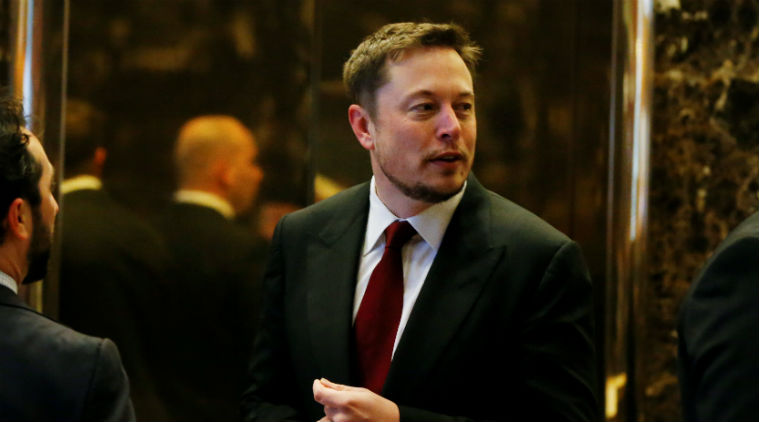 In the US, Elon Musk has embarked on an unexpected battle, railing at the press and threatening to create a site where the public can rate media content for truth value and check the credibility rating of journalists, editors and publishers.
In the US, Elon Musk has embarked on an unexpected battle, railing at the press and threatening to create a site where the public can rate media content for truth value and check the credibility rating of journalists, editors and publishers.
For once, there’s good news at home and abroad, and it’s spreading fast across a world that desperately needs good cheer. In France, undocumented immigrant Mamoudou Gassama swarmed up an apartment block to rescue an unattended child from a lethal fall and overnight, his face was almost as familiar the world over as that of Kim Kardashian, who has no comparable accomplishments. And here in Ramnagar, Uttarakhand, sub-inspector Gagandeep Singh became a sensation for saving a Muslim youth from the hands of a Hindu mob. He handled a volatile situation with commendable calm, and a video of the incident travelled at the speed of light.
But the two stories appear to have gone their separate ways thereafter. Gassama was thanked by the child’s father, who had gone to the shops and lingered to play Pokemon Go in the street (and was arrested for neglect). He was promised residency in France and inducted in the fire department, where his Spiderman skills could be very useful. His story appeared on television all over the world. Gagandeep’s story did not, however, travel as far.
The Cobrapost sting is also disappearing from view with amazing despatch. What remains is the entertaining claim of the Times Group, that while Cobrapost had been trying to sting it, it was secretly counter-stinging Cobrapost. Shades of Antonio Prohias’s Spy vs Spy in Mad magazine.
When the going gets tough, you can either get going, or start laughing. Serious folk prefer the former route — George Soros pulled his Open society Foundations (which invest in media diversity) out of his native Hungary, in protest against a crackdown threatened by right-wing prime minister Viktor Orban. But risk-takers tend to laugh off threats. Since a lot of the laughter is directed at ruling powers and commercial interests linked to them, it is a dangerous business, and the Nieman Lab is running a series on the people who lead dangerous lives. The latest installment concerns Satro Info, an online satire magazine in Bosnia-Herzegovina that does “a lot of fact-checking through humour”. Run by seven people, only four of whom are full-time, they have run almost 2,000 articles in 17 months of existence and are venturing into television. They “have had a number of copycats as well,” said Haris Dedovic, the editor. Humour is catching, and it would be interesting to see if volumes change in direct proportion to repression.
In the US, Elon Musk has embarked on an unexpected battle, railing at the press and threatening to create a site where the public can rate media content for truth value and check the credibility rating of journalists, editors and publishers. He tweeted that he was thinking of calling it Pravda. He appeared to have flown off the handle quite suddenly, but Bloomberg reports that last October, a Pravda Corp was set up in Delaware. The filing agent and the address listed, in Burlingame, California, were used earlier to incorporate two Musk ventures, Neuralink Corp, which threatens to connect humans with machines, and the ridiculously named Boring Company, which digs tunnels. But who are we to complain? If Patna can have its Boring Road, the US has a right to a Boring Company.
But it’s intriguing that Musk is biting the hand that feeds him free lunches. While legacy auto companies spend millions in ad campaigns for every new model, Tesla has relied on direct sales, overseen by a tiny marketing team, and hasn’t spent a dollar on traditional publicity. Disrupting the model, it relies on social media buzz and media coverage, which has largely been ecstatic. But recently, stories have begun appearing which suggest that Musk’s dreams are out of proportion with reality. While the ability to talk up is the foundation of entrepreneurship, finally, the numbers have to add up, too.
Musk’s Pravda proposal was initially treated as a joke by the press, but if he is serious, he believes that the promotional power of social media is greater than that of mass media. Which means that whoever’s booked first class tickets on the gravy train — there are indeed some journalists who should be assigned credibility ratings, like statutory warnings — could be going nowhere.